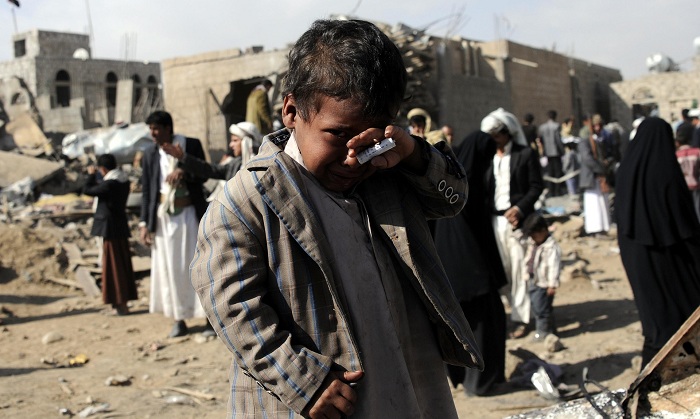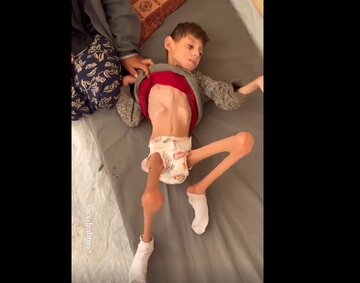Sabanews.net cited Mohamed bin Hafedh as saying that 1,681 cases of cholera have been detected in 12 provinces of the war-torn country, including in the north and west of the country.
Doctors Without Borders (MSF) also reported on Sunday that more than 570 suspected cases of cholera have been treated in Yemen during the past three weeks, some seven months after the outbreak of the infectious disease was declared in the conflict-plagued Arab country.
Saudi Arabia launched brutal aggression against its southern neighbor on 27 March 2015 in a bid to restore power to Yemen's resigned president who fled to Riyadh after Yemeni people's uprising in 2015.
"There are fears that the disease could turn into an epidemic. Two years into the war, the healthcare system has collapsed, hospitals are destroyed... and government employees' salaries have not been paid," said Ghassan Abou Chaar, the spokesman for the international medical charity.
He added that the MSF had witnessed a marked increase over the past week in suspected cholera cases in five provinces across the country.
Abdelhakim al-Kahlani, the spokesman for Yemen's Ministry of Health, said the bacterial infection had resurfaced the previous week in the impoverished country, with reported cases in 10 provinces. He added that two cholera-related fatalities had been confirmed in the capital Sana'a, three in the central province of Ibb and four in the western province of Hudaydah.
In early October last year, the World Health Organization announced the grim news of cholera outbreak in Yemen, and three weeks later it reported that the number of cholera cases across the country, including the capital, had soared to hundreds.
Last year, nearly 100 people lost their lives due to an outbreak of cholera and acute watery diarrhoea in Yemen.
Cholera, which causes severe diarrhoea and dehydration, is transmitted through contaminated drinking water and could prove fatal in up to 15 percent of untreated cases.
Over two years of Saudi Arabia's full-scale war on the impoverished country have put more than half of all health facilities in Yemen in a state of complete or partial shutdown. Furthermore, there are critical shortages in medical doctors in over 40 percent of all districts, according to the health ministry.
Western countries especially the US and Britain are among key suppliers of weapons used by the Saudi regime to commit atrocities and war crimes in Yemen.
Over 12,000 Yemenis, mostly civilians including women and children, have been killed during the ongoing Saudi-led aggression on Yemen. The military aggression has also taken a heavy toll on Yemen’s facilities and infrastructure, destroying many hospitals, schools, mosques and factories.
The Saudi airstrikes do not even spare the MSF medical centers in Yemen. In mid-August last year, at least 19 people were killed and 24 others sustained injuries when a Saudi airstrike hit an MSF hospital in Hajjah’s Abs district. It was the fifth and deadliest attack on an MSF-supported facility in Yemen.
Nearly 3.3 million Yemeni people, including 2.1 million children, are currently suffering from acute malnutrition, with more than seven million Yemenis facing the plight of starvation. The figures, however, could worryingly increase if the Saudi war machine continues to breathe fire on Yemeni people.
/106





